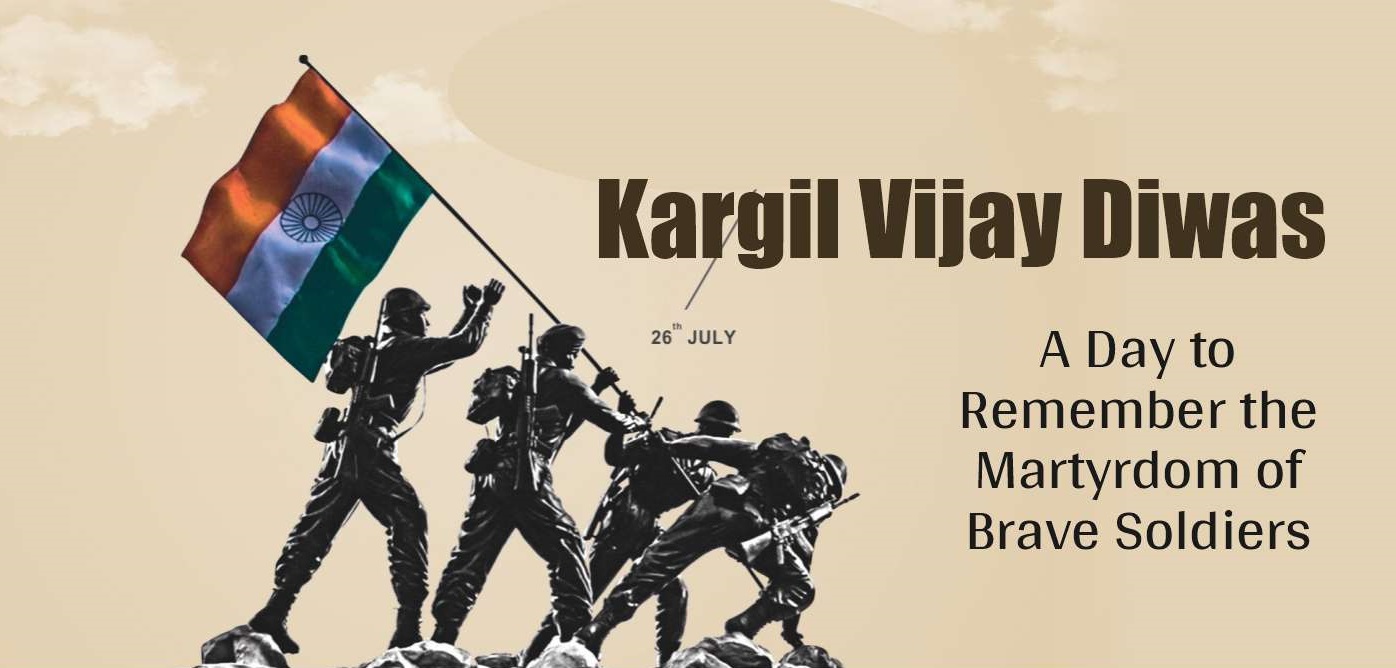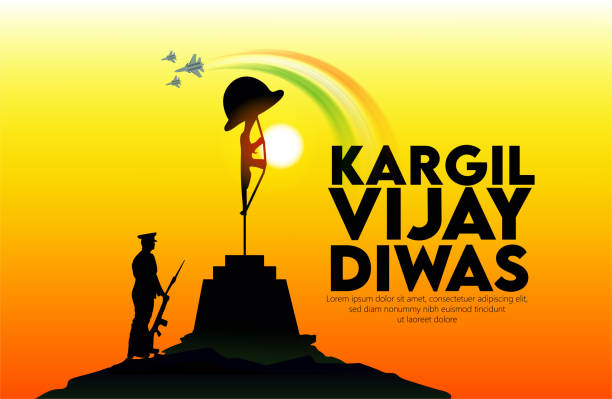The Background of the Kargil War
The Kargil War, also known as the Kargil Conflict, took place between May and July 1999 in the Kargil district along the Line of Control (LoC) in Kashmir. Pakistani soldiers and militants infiltrated into the Indian side of the LoC, occupying strategic heights that overlooked the vital Srinagar-Leh Highway. This act of aggression prompted India to launch "Operation Vijay" to reclaim the occupied territories.
The conflict was marked by intense and treacherous fighting in rugged, high-altitude terrain, where Indian soldiers demonstrated exceptional bravery and determination. Despite the harsh conditions, the Indian Army successfully recaptured key positions, culminating in the decisive victory on July 26, 1999.

Kargil Vijay Diwas is a day to remember the indomitable spirit of the Indian soldiers who laid down their lives to protect the nation. The war saw many acts of heroism, with soldiers displaying unparalleled courage and selflessness. Among the many heroes were Captain Vikram Batra, who became a symbol of bravery with his famous words "Yeh Dil Maange More!" and Lieutenant Manoj Kumar Pandey, whose leadership and sacrifice inspired countless others.
The nation also pays tribute to the families of the martyrs, acknowledging their immense sacrifice and the strength they showed during the conflict. Their stories serve as a reminder of the cost of freedom and the unwavering commitment of those who defend it.
Commemorating Kargil Vijay Diwas
1. Ceremonies and Tributes: Across India, military establishments, schools, and communities organize events to honor the Kargil heroes. Wreath-laying ceremonies, parades, and cultural programs highlight the valor and sacrifices of the soldiers. The main event takes place at the Kargil War Memorial in Dras, where veterans, families of martyrs, and dignitaries gather to pay homage.
2. Educational Initiatives: Educational institutions use this day to teach students about the significance of the Kargil War. Special assemblies, documentaries, and discussions help instill a sense of patriotism and respect for the armed forces among the younger generation.
3. Media and Publications: Media outlets play a crucial role in spreading awareness about Kargil Vijay Diwas. Articles, documentaries, interviews with veterans, and special programs help keep the memory of the war alive and educate the public about the sacrifices made by the soldiers.
4. Community Activities: Various community groups and organizations conduct blood donation drives, charity events, and other activities to honor the spirit of service and sacrifice exemplified by the Kargil heroes.
5. Personal Reflections: Individuals can observe Kargil Vijay Diwas by reflecting on the sacrifices made by the soldiers and their families. Sharing stories of bravery on social media, visiting war memorials, and lighting candles in remembrance are some ways to pay tribute.

Lessons from Kargil
Kargil Vijay Diwas is not just a day of remembrance but also a time to reflect on the lessons learned from the conflict. The war underscored the importance of vigilance, preparedness, and unity in the face of adversity. It highlighted the need for a strong and well-equipped military, capable of defending the nation's sovereignty.
Moreover, the war fostered a sense of national unity and pride, bringing people together in support of the armed forces. The resilience and determination demonstrated during the conflict continue to inspire and motivate the nation.
Conclusion
Kargil Vijay Diwas is a solemn reminder of the sacrifices
made by the brave soldiers who fought for the country's honor and integrity. It
is a day to celebrate their victory, remember their sacrifices, and renew our
commitment to the values they stood for. As we commemorate this day, let us
honor the memory of the heroes who gave their all for the nation and pledge to
uphold the ideals of bravery, patriotism, and unity that they embodied.

